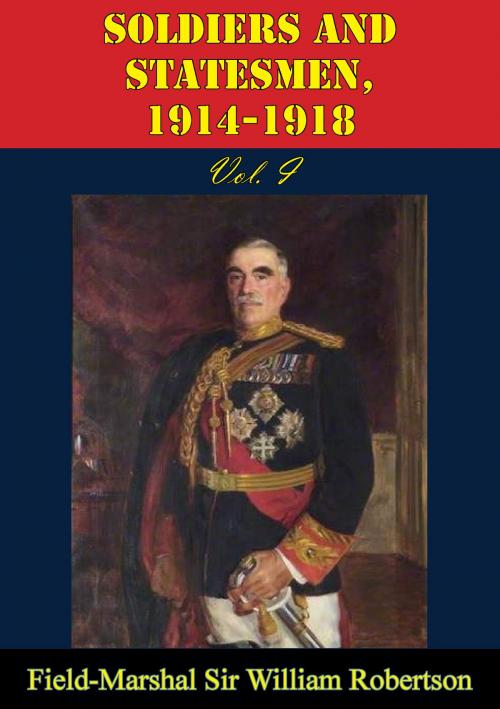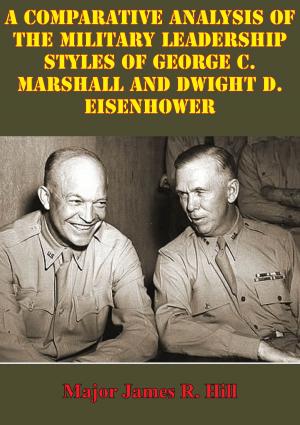Soldiers And Statesmen, 1914-1918 Vol. I
Nonfiction, History, Military, World War I, Germany, British| Author: | Field-Marshal Sir William Robertson | ISBN: | 9781786256881 |
| Publisher: | Lucknow Books | Publication: | November 6, 2015 |
| Imprint: | Lucknow Books | Language: | English |
| Author: | Field-Marshal Sir William Robertson |
| ISBN: | 9781786256881 |
| Publisher: | Lucknow Books |
| Publication: | November 6, 2015 |
| Imprint: | Lucknow Books |
| Language: | English |
Sir William “Wully” Robertson was the first (and only) man to rise from the lowliest rank of private soldier to the highest rank of Field Marshal within the British Army. Determined, strong-willed and militarily conservative he served ably in field and staff positions in India and South Africa; always chary of wasting his men’s lives. When the First World War broke out he sailed with the BEF in 1914 as quartermaster-general but was promoted to the post of chief of the Imperial General Staff in 1915. A staunch “westerner” who believed that the war could only be won in France and Flanders by knocking the German army out of the war, he faced many amateur strategists who wanted to squander resources in other theatres. By 1918 he resigned his post in disgust at the policies of David Lloyd George who refused to reinforce Sir Douglas Haig in France precipitating the German breakthroughs of the spring and summer.
From the very start of the war Robertson was at the hub of the action at the highest levels of the British war effort; in these two volumes he reveals the decisions and struggles that shaped that strategy. Filled with the opinion of the “westerner” school of thought; through the pages Robertson despairs at the Gallipoli invasion, sets against the Salonika disaster and fumes at the civilian members of the war cabinet and the “Supreme War Council”. Written a short time after the war with it all fresh and even with some bad feeling in mind these two volumes are essential to the History of the First World War.
Sir William “Wully” Robertson was the first (and only) man to rise from the lowliest rank of private soldier to the highest rank of Field Marshal within the British Army. Determined, strong-willed and militarily conservative he served ably in field and staff positions in India and South Africa; always chary of wasting his men’s lives. When the First World War broke out he sailed with the BEF in 1914 as quartermaster-general but was promoted to the post of chief of the Imperial General Staff in 1915. A staunch “westerner” who believed that the war could only be won in France and Flanders by knocking the German army out of the war, he faced many amateur strategists who wanted to squander resources in other theatres. By 1918 he resigned his post in disgust at the policies of David Lloyd George who refused to reinforce Sir Douglas Haig in France precipitating the German breakthroughs of the spring and summer.
From the very start of the war Robertson was at the hub of the action at the highest levels of the British war effort; in these two volumes he reveals the decisions and struggles that shaped that strategy. Filled with the opinion of the “westerner” school of thought; through the pages Robertson despairs at the Gallipoli invasion, sets against the Salonika disaster and fumes at the civilian members of the war cabinet and the “Supreme War Council”. Written a short time after the war with it all fresh and even with some bad feeling in mind these two volumes are essential to the History of the First World War.


![Cover of the book A Private In The Guards [Illustrated Edition] by Field-Marshal Sir William Robertson](https://www.kuoky.com/images/2015/november/300x300/9781786255327-SjeE_300x.jpg)




![Cover of the book Road To Huertgen: Forest In Hell [Illustrated Edition] by Field-Marshal Sir William Robertson](https://www.kuoky.com/images/2014/august/300x300/9781782898467-CKj5_300x.jpg)




![Cover of the book Alamein to Zem Zem [Illustrated Edition] by Field-Marshal Sir William Robertson](https://www.kuoky.com/images/2015/november/300x300/9781786257512-Y8XW_300x.jpg)


